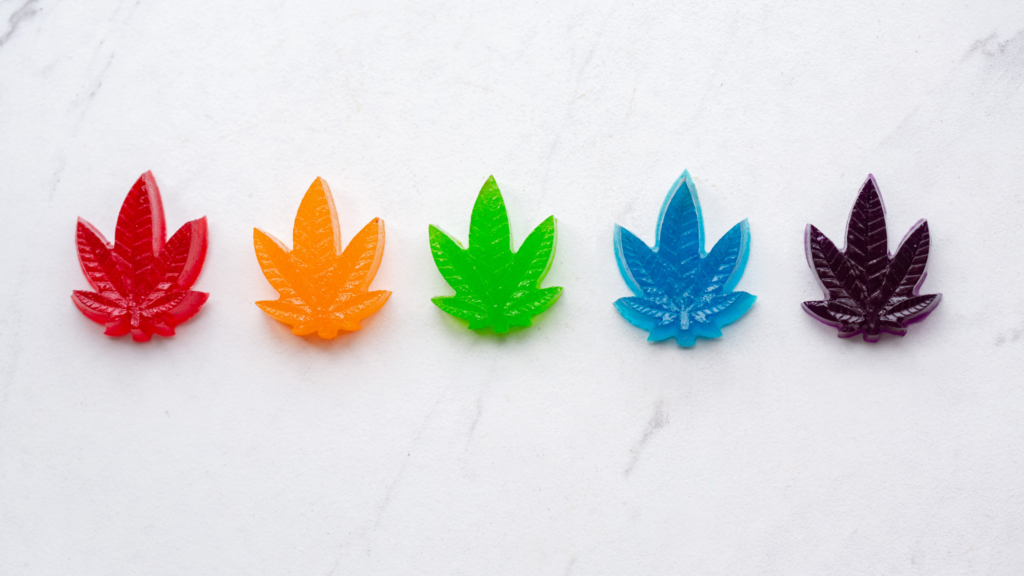- News
- CBD Gummies for Dummies: From Novices to Pros, Here’s What You Need to Know About Michigan CBD Laws
CBD Gummies for Dummies: From Novices to Pros, Here’s What You Need to Know About Michigan CBD Laws

Since its statewide, recreational legalization in 2019, we’ve heard a lot of questions about Cannabidiol (better known as CBD). For instance, folks are asking things like: Is it okay to drive after consuming CBD gummies? Can truck drivers legally work if they’re using CBD? Could CBD help improve my complexion?
Those are some important questions that deserve clear(asil) answers. Because, in case you’ve missed it, a growing number of people consider CBD helpful in reducing anxiety, treating aches and pains, and even clearing up acne. It’s also being touted (and tested) as a potential treatment for cancer amongst other medical purposes. However, despite its growing reputation as a cure-all, CBD is not FDA-approved for any of these uses. In fact, only one FDA-approved prescription-based drug — a treatment for severe epilepsy — includes CBD in its pure form.
While we are not able to offer opinions on the efficacy of CBD for health-related purposes (that’s up to the FDA and medical experts), the legal team at the Mike Morse Law Firm does feel it may be helpful to offer you some insights into federal and Michigan laws, rules, and regulations related to CBD so you can be well informed if you decide to try it.
First of all, is CBD legal?
The short answer is yes, provided it has a very low concentration of THC (the psychoactive ingredient in marijuana). That’s because CBD and THC can be derived both from hemp and from the variety of cannabis used for marijuana. When the extracted CBD has a percentage of THC lower than 0.1 percent, it is considered by the U.S. Drug Enforcement Agency (DEA) to be a Schedule 5 drug rather than a Schedule 1 substance (Schedule 1 drugs are tightly controlled, and include such drugs as heroin, peyote, and LSD, which have a high potential to lead to addictions and no currently approved medical uses). In contrast, drugs in Schedule 5 are considered to have the lowest propensity for abuse. Some examples of those drugs are Lyrica (used to treat pain and epilepsy), Lomotil (a treatment for diarrhea), and Robitussin A-C (a cough suppressant). In Michigan specifically, CBD with a THC percentage lower than 0.3 percent is not considered to be marijuana, and therefore not subject to the state’s pot laws.
What about marijuana?
Michigan’s legalization of pot for medical purposes happened in 2008, and its approval for recreational use occurred in 2018 (CBD wasn’t officially, recreationally legalized until January 2019). Citizens are permitted to grow a limited number of plants and can possess up to 2.5 ounces of marijuana for personal use. Legal dispensaries have been operating since 2019. If you want to use weed in Michigan, the law allows you to smoke it, ingest it via edibles, or apply it topically, at home. But despite the relaxation in Michigan’s marijuana laws, it is never legal in schools or even on school buses for that matter. Details about Michigan’s marijuana regulations are compiled on the state’s Marijuana Regulatory Agency website, and legal statutes are clearly detailed by NORML (the National Organization for the Reform of Marijuana Laws).
Are CBD-based products also legal?
As noted above, the answer is yes, provided the level of THC falls below 0.1 percent (per DEA rules) or 0.3 percent (for Michigan regulations). However, since CBD products are not federally regulated by the FDA, there is no standard in place to ensure you are getting truly pure cannabidiol, or that the products you receive don’t contain higher levels of THC than stated on the packaging. In fact, a study cited by the Mayo Clinic notes that many CBD products didn’t have the promised purity listed on their labels and more than one out of five CBD products tested contained THC. So, be careful when using CBD and don’t assume that these products definitely won’t get you into trouble with the law.
Which leads us back to a couple of highly important questions we mentioned earlier:
Is it okay to drive after consuming CBD gummies?
Simply put, you’re taking your chances. Since there’s no way to be certain that the CBD gummies you consume contain no THC, you could very well test positive for THC if you’re pulled over and subjected to medical testing. Michigan law treats driving while under the influence of alcohol and drugs in the same way. Driving drunk is forbidden and, since marijuana remains a federal Schedule 1 drug (even though the state has legalized it for personal use), you could find yourself in serious trouble due to a positive drug test — even if it’s caused by CBD gummies accidentally containing more THC than the label claims.
Let’s be perfectly clear. Michigan law prohibits you from having any amount of illegal drugs in your body while driving. To quote the law, if you fail a drug test you could be charged with, “Operating With Any Presence of a Schedule 1 Drug” (abbreviated OWPD) in Michigan, which means “having even a small trace of these drugs in your body” can result in arrest and conviction “even if you do not appear to be intoxicated or impaired.” Penalties for being convicted of OWPD as a first offense are severe, and can include fines up to $500, mandatory suspension of your driver’s license, up to 93 days in jail, six points added to your driving record, and several more unpleasant consequences, including legal defense fees, not to mention the very real possibility of having to live with lingering shame, guilt and social ostracism.
Can truck drivers legally work if they are using CBD?
The answer to the question above applies here in spades. Semi drivers are especially at risk when using CBD gummies or other products because there’s no way to verify that those products are free from THC. It goes without saying that driving while high is highly dangerous. But beyond that, U.S. Department of Transportation rules prohibit truckers from using any Schedule 1 substances. This has resulted in a quandary for Canadian truck drivers, who are not subject to the same strict prohibition on THC. When they cross the border into the United States, they face a severe penalty if a drug test registers positive for THC: being banned from driving south of the border. Here in Michigan, where border crossings are frequent for semi drivers, Canadian truckers need to be particularly aware of this situation. Entering the Great Lakes State via the Ambassador or Blue Water Bridges, or arriving through the Detroit-Windsor tunnel, means driving into a whole new world when it comes to laws governing marijuana use.
What’s the best way to use CBD safely?
Like anything else, doctors and nutritionists recommend moderation in all things. It might also be wise to consider the chosen method of introducing CBD into your body. Not too long ago, the Centers for Disease Control claimed vaporized CBD was associated with lung damage, which could raise concerns about obtaining CBD from e-cigarettes or vaping. Oil, capsules, and tinctures are alternative ways to add CBD to your “dietary” intake. Gummies are growing in popularity, and a Healthline article outlines factors to keep in mind when choosing from the many chewable brands available. Among those are the source of the hemp from which the CBD is extracted (domestic or foreign), the percentage of CBD in the gummies (as certified by the manufacturer), the availability of data on impurities or toxins, and the results of independent lab tests on the gummies being evaluated.
Whatever you decide, be sure to follow the manufacturer’s recommendations and pay attention to your body’s responses to the CBD as you begin to use it. If you experience adverse reactions, stop using CBD. And remember that if you are ever hurt or injured — whether as a result of personal use of CBD products, or by someone who is using any drugs irresponsibly — we’ll be here for you. Call our personal injury attorneys at 855-MIKE-WINS (855-645-3946) or get in touch with us online.

Content checked by Mike Morse, personal injury attorney with Mike Morse Injury Law Firm. Mike Morse is the founder of Mike Morse Law Firm, the largest personal injury law firm in Michigan. Since being founded in 1995, Mike Morse Law Firm has grown to over 200 employees, served 40,000 clients, and collected more than $1.5 billion for victims of auto, truck and motorcycle accidents. The main office is in Southfield, MI but you can also find us in Detroit, Sterling Heights and many other locations.








